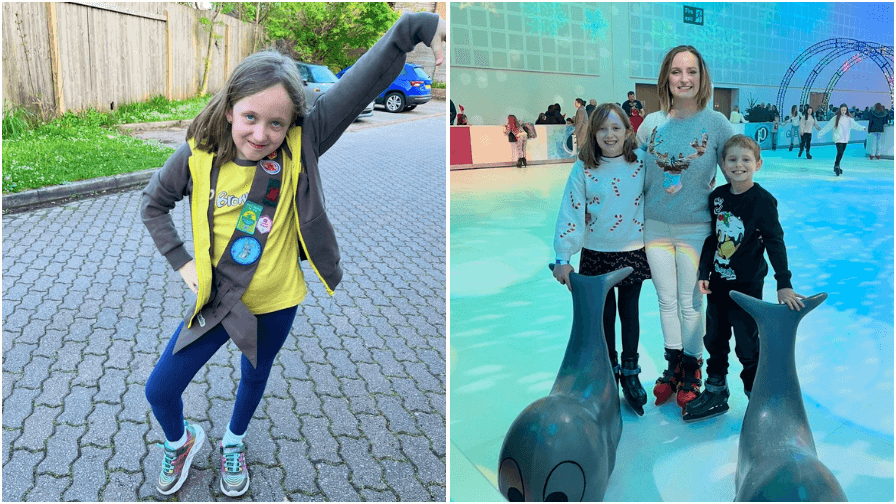breadcrumb navigation:
- Home /
- Research /
- Family stories /
-
current page
Tora: neurofibromatosis type 1 (NF1)
Tora: neurofibromatosis type 1 (NF1)
Published on
Updated:

Tora's story
Neurofibromatosis type 1 (NF1)
NF1 affects around 1 in 3,500 people. Its symptoms can vary greatly and develop gradually. As a child gets older, they often develop multiple non-cancerous tumours growing on or under the skin and along nerves. These can cause serious complications and sadly in some cases become cancerous. Learning and developmental issues are also very common.
Tora was diagnosed with NF1 when she was a year old. Her mum Lisa, a GP, had noticed a cafe au lait spot when she was just days old. These light brown skin patches can be a sign of the condition – although Lisa admits that it was only her own medical knowledge that made her consider this possibility. “If I was non-medical, the diagnosis would have probably taken many years,” she says.
Lisa was initially dismissed as an anxious first-time mum. But when another spot appeared, she strongly requested a referral for genetic tests.
“I remember the phone call like it was yesterday”
As a doctor, Lisa knew what NF was. “But I was desperate for the test to be negative,” she recalls. “After the call confirmed my worst fears, I cried until my body ached. I didn’t sleep properly for weeks.”
“My doctor brain tried to reassure me that I had seen patients with NF and it doesn’t always cause major health complications. My mum brain, though, couldn’t help but worry about the unknown,” she says.
As a toddler, Tora had to learn to cope with frequent distressing procedures, such as blood tests, cannulas, eye drops and MRI scans. “She was under nine different medical specialties,” says Lisa.

Most frightening of all was the discovery that Tora has an optic pathway glioma. This is a slow-growing tumour occurring in or around the optic nerve. Around 15% of children with NF1 develop this type of tumour.
Tora’s glioma was found when she was three and has thankfully remained stable, meaning she has not needed chemotherapy. But monitoring this tumour meant that for several years Tora had to visit an oncology clinic every three to six months, undergoing many MRI scans. Until she was four-and-a-half, this required a general anaesthetic. Since then, she has learnt to have her scans fully awake – with Lisa teaching her meditation skills to help her stay still.

“The biggest difficulty at the moment is how NF affects her experiences in school”
Tora has dyspraxia and hypermobility, which affects her strength, coordination and balance. As well as these physical challenges, she also has significant dyslexia and dyscalculia. Now in her final year at primary school, moving up to secondary school feels especially daunting.
For Lisa, managing the emotional pressures of living with NF1 has become a top priority. “This can be the biggest challenge for us, and I want Tora’s mental resilience and wellbeing to be good,” she explains. “As a family we have developed tools and made lifestyle changes to help Tora live well – and this benefits our whole family.”

Thinking about the future, Lisa worries about the risk of certain cancers. Her ultimate hope is for a cure for NF1, or to be able to predict and understand what could lead to worse symptoms.
There is currently only one approved drug treatment for NF1, but it isn’t always effective and can cause serious side effects. With funding from Action Medical Research and LifeArc, Professor Benjamin Housden of the University of Exeter hopes to develop a new treatment option.
In terms of the difference this could make, Lisa says: “It would be a huge weight off my shoulders.”
Our fear is that treatment options are so limited. It’s very difficult living in a situation where you have no idea how bad things could be and what would make a difference.”
Thank you to charity Nerve Tumours UK for putting us in contact with Tora and Lisa.
